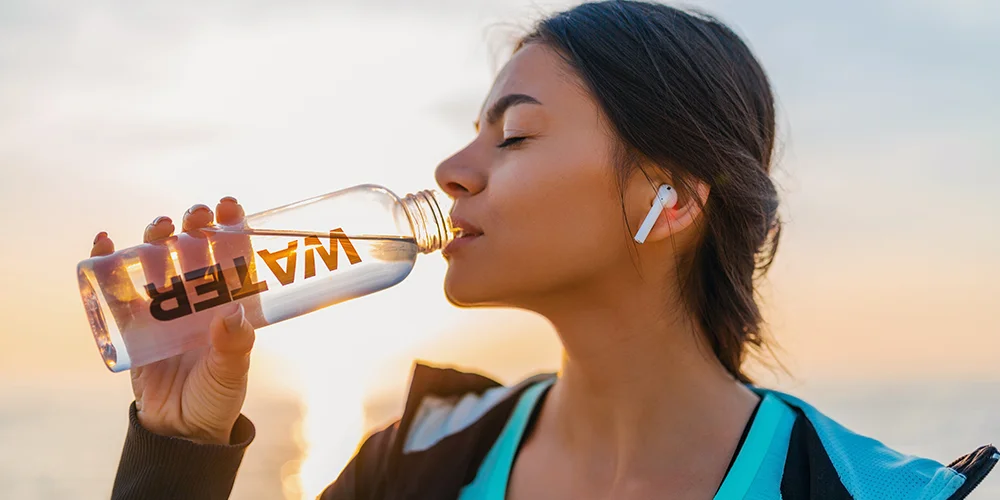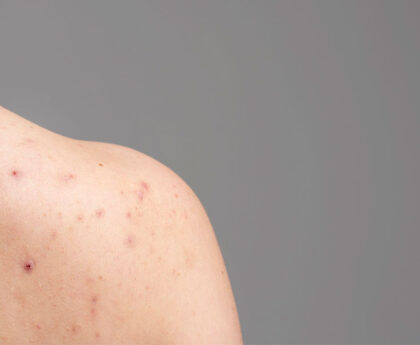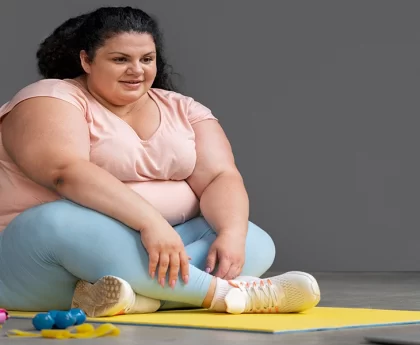Dehydration: is a medical condition characterized by an inadequate amount of fluids in the body, which can result from a deficiency in the intake of liquids or an excessive loss of fluids. It occurs when the body loses more fluids than it takes in, leading to an imbalance in the body’s electrolytes and impairing its ability to function properly. Dehydration can range from mild to severe and can have various causes, including excessive sweating, diarrhea, vomiting, fever, or inadequate fluid intake. Common symptoms of dehydration include dry mouth, dark yellow urine, fatigue, dizziness, confusion, and in severe cases, can lead to serious complications such as kidney problems, heat-related illnesses, and even death if left untreated. Rehydration through the consumption of fluids or, in severe cases, medical intervention, is essential to treat dehydration and restore the body’s fluid balance.
Types of Dehydration
Dehydration can be categorized into different types based on the underlying causes and specific characteristics.
The main types of dehydration include:
- Hypertonic (Hypernatremic) Dehydration:
– This type of dehydration occurs when there is a loss of water from the body without a proportional loss of electrolytes, especially sodium (salt). It leads to an increased concentration of sodium in the blood (hypernatremia). Hypertonic dehydration can result from inadequate fluid intake, excessive sweating, or conditions like diabetes insipidus. - Hypotonic (Hyponatremic) Dehydration:
– Hypotonic dehydration is characterized by a loss of electrolytes, primarily sodium, that exceeds the loss of water. This results in a lower concentration of sodium in the blood (hyponatremia). It can occur when a person drinks excessive amounts of plain water without replenishing lost electrolytes or in conditions like syndrome of inappropriate antidiuretic hormone secretion (SIADH). - Isotonic (Isotonic) Dehydration:
– Isotonic dehydration is when there is an equal loss of water and electrolytes, maintaining the balance between them. This type of dehydration can occur in cases of diarrhea, vomiting, or excessive sweating, where both fluids and electrolytes are lost proportionally. - Intracellular Dehydration:
– Intracellular dehydration occurs when there is a depletion of water inside the cells, leading to cells shrinking and becoming less functional. This type of dehydration may not always reflect the overall fluid balance in the body and can occur in conditions such as diabetes mellitus. - Extracellular Dehydration:
– Extracellular dehydration refers to a deficiency of water in the extracellular space, which includes the blood plasma and interstitial fluid. It can result from a variety of causes, including insufficient fluid intake, excessive sweating, vomiting, or diarrhea. - Dehydration by Age:
– Dehydration can affect individuals of all ages, but specific age groups may be more vulnerable. For example, infants and the elderly are more susceptible to dehydration due to their decreased ability to regulate body fluids and often require special attention to maintain hydration. - Dehydration by Cause:
– Dehydration can also be categorized by its underlying causes, such as exercise-induced dehydration, heat-related dehydration (heat exhaustion or heat stroke), illness-related dehydration (e.g., gastroenteritis), and fasting-induced dehydration.
It’s important to recognize the type of dehydration to determine the appropriate treatment and fluid replacement strategy. In all cases, timely rehydration is crucial to restore fluid balance and prevent complications associated with dehydration. Severe dehydration may require medical intervention and intravenous fluids.
Symptoms of Dehydration
Dehydration can manifest through various symptoms, ranging from mild to severe, depending on the extent of fluid loss and the individual’s age and health.
Common symptoms of dehydration include:
- Thirst: The sensation of thirst is the body’s natural response to a fluid deficit. It is one of the earliest signs of dehydration.
- Dry Mouth and Dry Skin: Dehydrated individuals often experience a dry, sticky feeling in the mouth and may have dry or flushed skin.
- Dark Yellow Urine: Dark yellow or amber-colored urine is a common sign of dehydration. Healthy urine is typically pale yellow.
- Decreased Urination: Dehydration can lead to reduced urine output, and in severe cases, individuals may produce very little urine or none at all.
- Fatigue: Dehydration can cause fatigue, weakness, and reduced energy levels. Physical and mental performance may decline.
- Dizziness and Lightheadedness: Insufficient fluid levels can lead to a drop in blood pressure, resulting in dizziness, lightheadedness, or even fainting.
- Headache: Dehydration may trigger headaches due to reduced blood flow and oxygen supply to the brain.
- Rapid Heartbeat: An elevated heart rate (tachycardia) can be a response to dehydration as the body tries to maintain adequate blood circulation.
- Dry or Sticky Mucus Membranes: Dehydration can cause dryness in the eyes, nose, and throat, leading to discomfort.
- Sunken Eyes: In severe cases of dehydration, the eyes may appear sunken, with dark circles around them.
- Muscle Cramps: Dehydration can result in muscle cramps or spasms, particularly during physical activity.
- Irritability and Confusion: Dehydration can affect cognitive function, leading to irritability, confusion, and difficulty concentrating.
- Poor Skin Elasticity: Skin may lose its elasticity, and when pinched, it may not return to its normal position promptly.
- Low Blood Pressure: Dehydration can cause a drop in blood pressure, which may contribute to feelings of weakness and dizziness.
- Increased Body Temperature: Dehydration impairs the body’s ability to regulate temperature, potentially leading to overheating and heat-related illnesses.
- Dry or Coated Tongue: The tongue may become dry or coated with a white film in dehydrated individuals.
Severe dehydration can lead to life-threatening complications, such as kidney problems, heatstroke, and shock. If someone exhibits severe symptoms, it is crucial to seek immediate medical attention. Rehydration with fluids is the primary treatment for dehydration, and in severe cases, intravenous (IV) fluids may be necessary. Staying hydrated by drinking water regularly and recognizing the early signs of dehydration can help prevent these symptoms from occurring.
Causes of Dehydration
Dehydration occurs when the body loses more fluids than it takes in, leading to an imbalance in the body’s fluid levels.
There are several common causes of dehydration, including:
- Inadequate Fluid Intake: Failing to drink enough fluids, especially water, is a primary cause of dehydration. This can happen due to forgetfulness, lack of access to clean drinking water, or not recognizing the body’s need for hydration.
- Excessive Sweating: Intense physical activity or exercising in hot and humid conditions can lead to excessive sweating, causing a significant loss of fluids and electrolytes.
- Diarrhea: Frequent and watery bowel movements can result in rapid fluid loss from the body. Diarrhea can be caused by infections, food poisoning, or underlying medical conditions.
- Vomiting: Repeated vomiting can lead to the expulsion of fluids and electrolytes from the stomach, increasing the risk of dehydration. This can occur due to illness, pregnancy-related morning sickness, or other medical issues.
- Fever: A high fever can increase the body’s metabolic rate and cause excessive sweating, leading to fluid loss and dehydration.
- Urinary Conditions: Conditions such as diabetes and kidney diseases can lead to increased urination, which can result in fluid loss and dehydration.
- Medications: Certain medications, such as diuretics (“water pills”) and laxatives, can cause increased urine output or diarrhea, contributing to dehydration.
- Alcohol and Caffeine Consumption: Both alcohol and caffeine can have diuretic effects, causing the body to lose more fluids through increased urination.
- Illnesses: Infections, particularly those accompanied by fever, vomiting, or diarrhea, can accelerate fluid loss and dehydration. Common illnesses include gastroenteritis, flu, and urinary tract infections.
- Age: Infants, young children, and the elderly are more vulnerable to dehydration because they may not be able to communicate their thirst or may have reduced fluid reserves.
- Hot Weather: Exposure to high temperatures, especially without adequate fluid intake, can lead to dehydration, heat exhaustion, or heatstroke.
- Chronic Medical Conditions: Some chronic health conditions, such as diabetes, cystic fibrosis, and kidney disease, can increase the risk of chronic or recurrent dehydration.
- Pregnancy and Breastfeeding: Pregnant women and breastfeeding mothers may need to consume more fluids to support their increased fluid requirements, and inadequate intake can lead to dehydration.
It’s important to recognize the causes of dehydration and take steps to prevent it. Staying hydrated by drinking water regularly, especially in hot or strenuous conditions, and addressing underlying medical issues are essential for maintaining proper fluid balance in the body. In severe cases of dehydration, medical attention and rehydration with oral rehydration solutions or intravenous fluids may be necessary.

Home Remedies of Dehydration
Dehydration occurs when your body loses more fluids than it takes in, and it can lead to symptoms like thirst, dry mouth, dark urine, fatigue, and dizziness. While severe dehydration may require medical attention and rehydration with fluids, mild cases of dehydration can often be treated with home remedies.
Here are some home remedies for mild dehydration:
- Drink Water: The most straightforward way to treat dehydration is to drink water. Sip small amounts of water throughout the day rather than guzzling it all at once. This helps your body absorb the water more effectively.
- Oral Rehydration Solutions (ORS): Oral rehydration solutions like Pedialyte or homemade solutions (mix 1 teaspoon of salt and 4 teaspoons of sugar in 1 liter of clean water) can help replace lost electrolytes and fluids. These solutions are particularly useful if you’ve been sweating excessively.
- Coconut Water: Coconut water is a natural source of electrolytes, such as potassium, and can help replenish lost fluids and minerals.
- Sports Drinks: While not ideal for everyday hydration due to their sugar content, sports drinks like Gatorade or Powerade can be useful in replenishing electrolytes and fluids after intense physical activity or sweating.
- Clear Broth or Soup: Clear broths and soups contain electrolytes and can help with rehydration. They are also easier to digest when you’re feeling queasy.
- Herbal Teas: Herbal teas like ginger, chamomile, or mint can be soothing and hydrating. You can drink them warm or cold.
- Water-Rich Fruits and Vegetables: Foods like watermelon, cucumber, and oranges have high water content and can contribute to your overall fluid intake.
- Avoid Dehydrating Beverages: Stay away from beverages that can contribute to dehydration, such as alcohol, caffeinated drinks (like coffee and tea), and sugary sodas.
- Rest: Resting can help your body recover and conserve energy. Avoid strenuous physical activities until you’ve adequately rehydrated.
- Monitor Urine Color: Check the color of your urine. If it’s pale yellow, you’re likely well-hydrated. Dark yellow or amber-colored urine is a sign of dehydration.
- Eat Salty Snacks: In moderation, salty snacks like pretzels or crackers can help your body retain fluids.
- Avoid Hot Environments: If possible, stay in a cool, shaded area to minimize sweating.
- Take Small Sips: Instead of drinking a large glass of water quickly, take small sips over time to help your body absorb the fluids more efficiently.
It’s important to note that severe dehydration requires immediate medical attention, and home remedies may not be sufficient. If you or someone you know experiences severe dehydration with symptoms like rapid heartbeat, confusion, sunken eyes, or inability to keep fluids down, seek medical help promptly. Dehydration can be especially dangerous for infants, young children, and the elderly. Always consult a healthcare professional for proper evaluation and treatment if you are unsure about the severity of dehydration.
What vitamins help with dehydration?
Vitamins themselves do not directly help with dehydration; instead, proper hydration is primarily achieved by consuming fluids and electrolytes. However, certain vitamins and minerals play important roles in maintaining overall health and can indirectly support your body’s hydration status.
These vitamins and minerals include:
- Electrolytes: Electrolytes are minerals that help regulate fluid balance in the body. The main electrolytes are sodium, potassium, calcium, and magnesium. Consuming foods and beverages rich in these electrolytes can help maintain proper hydration. Electrolyte-rich foods include bananas (potassium), dairy products (calcium), and leafy green vegetables (magnesium).
- Vitamin C: Vitamin C is an antioxidant that supports overall health, including immune function. While it doesn’t directly prevent dehydration, it can aid recovery from illnesses that cause fluid loss, such as diarrhea and vomiting. Citrus fruits (oranges, lemons), strawberries, and broccoli are good sources of vitamin C.
- B Vitamins: B vitamins, including B1 (thiamine), B2 (riboflavin), B3 (niacin), B5 (pantothenic acid), and B6 (pyridoxine), play roles in energy metabolism and overall health. Adequate intake of these vitamins supports the body’s normal function, which includes hydration regulation. Whole grains, legumes, nuts, and leafy greens are good sources of B vitamins.
- Vitamin D: Vitamin D helps with calcium absorption and bone health. While it doesn’t directly affect hydration, it contributes to overall health, including bone strength. Sunlight exposure and certain foods like fatty fish (e.g., salmon, mackerel) and fortified dairy products are sources of vitamin D.
- Vitamin E: Vitamin E is an antioxidant that supports immune function and skin health. It doesn’t play a direct role in hydration, but it contributes to overall well-being. Nuts, seeds, and vegetable oils are good sources of vitamin E.
- Zinc: Zinc is a mineral involved in various bodily functions, including immune support. While it doesn’t directly address dehydration, maintaining sufficient zinc levels can help your body recover from illnesses that lead to fluid loss. Foods like meat, nuts, and legumes contain zinc.
It’s important to emphasize that vitamins and minerals should be obtained through a balanced diet and not as a substitute for proper hydration. Staying hydrated by drinking water and electrolyte-rich beverages when needed is the most effective way to address dehydration. If you are concerned about your vitamin and mineral intake or have specific health conditions, consult a healthcare provider or a registered dietitian for personalized advice and recommendations.
What is the best way to cure dehydration?
The best way to treat dehydration depends on its severity. For mild to moderate cases of dehydration,
You can usually rehydrate yourself by following these steps:
- Drink Fluids: The most effective way to treat dehydration is to consume fluids. Water is a good choice, but oral rehydration solutions (ORS), which contain a precise balance of electrolytes (sodium, potassium, and sometimes glucose) and water, are even better. These solutions help replenish both water and electrolytes lost during dehydration.
- Sip Fluids Slowly: If you’re dehydrated, don’t try to chug large quantities of fluids all at once. Instead, sip small amounts of fluids over time to allow your body to absorb them better.
- Eat Hydrating Foods: Consume foods with high water content, such as watermelon, cucumber, oranges, and soups. These can help contribute to your fluid intake.
- Avoid Dehydrating Substances: Stay away from alcohol, caffeine, and sugary drinks, as they can exacerbate dehydration. These substances can act as diuretics, increasing urine production.
- Rest: Give your body a chance to recover by resting and avoiding strenuous activities, especially in hot and humid conditions.
- Monitor Your Urine: Check the color of your urine. If it’s pale yellow or light in color, you’re likely adequately hydrated. Dark yellow or amber-colored urine is a sign that you need more fluids.
For severe dehydration or if you’re unable to keep fluids down due to vomiting, you should seek immediate medical attention. In these cases, intravenous (IV) fluids administered by a healthcare professional are often required to rapidly rehydrate the body.
It’s important to note that prevention is key to avoiding dehydration. Ensure you drink an adequate amount of water daily, especially in hot weather or when engaging in physical activity. Pay attention to your body’s signals of thirst, and be proactive in maintaining hydration. Infants, young children, the elderly, and individuals with certain medical conditions may be at higher risk of dehydration and require special attention to their fluid intake. If you have any concerns about your hydration status or if dehydration persists, consult a healthcare provider for guidance and evaluation.
Iodine Deficiency: Symptoms, Causes, & Home Remedies
Insomnia: Types, Symptoms, Causes & Prevention
Sore Throat, Symptoms, Causes, Prevention & Home Remedies
Dandruff: Types, Symptoms, Causes & Prevention
Dark Circles Under Eyes: Symptoms, Remedies & Prevention
Heart Attack: Types, Symptoms & Prevention
Eye Infections: Symptoms, Causes & Treatment
Vertigo: Causes, Symptoms, Treatment & Preventive
Hair Loss, Types, Symptoms, Prevention & Treatments
Knee Pain, Symptoms, Types & Self Management
If you don’t like this article/post please share your feedback





